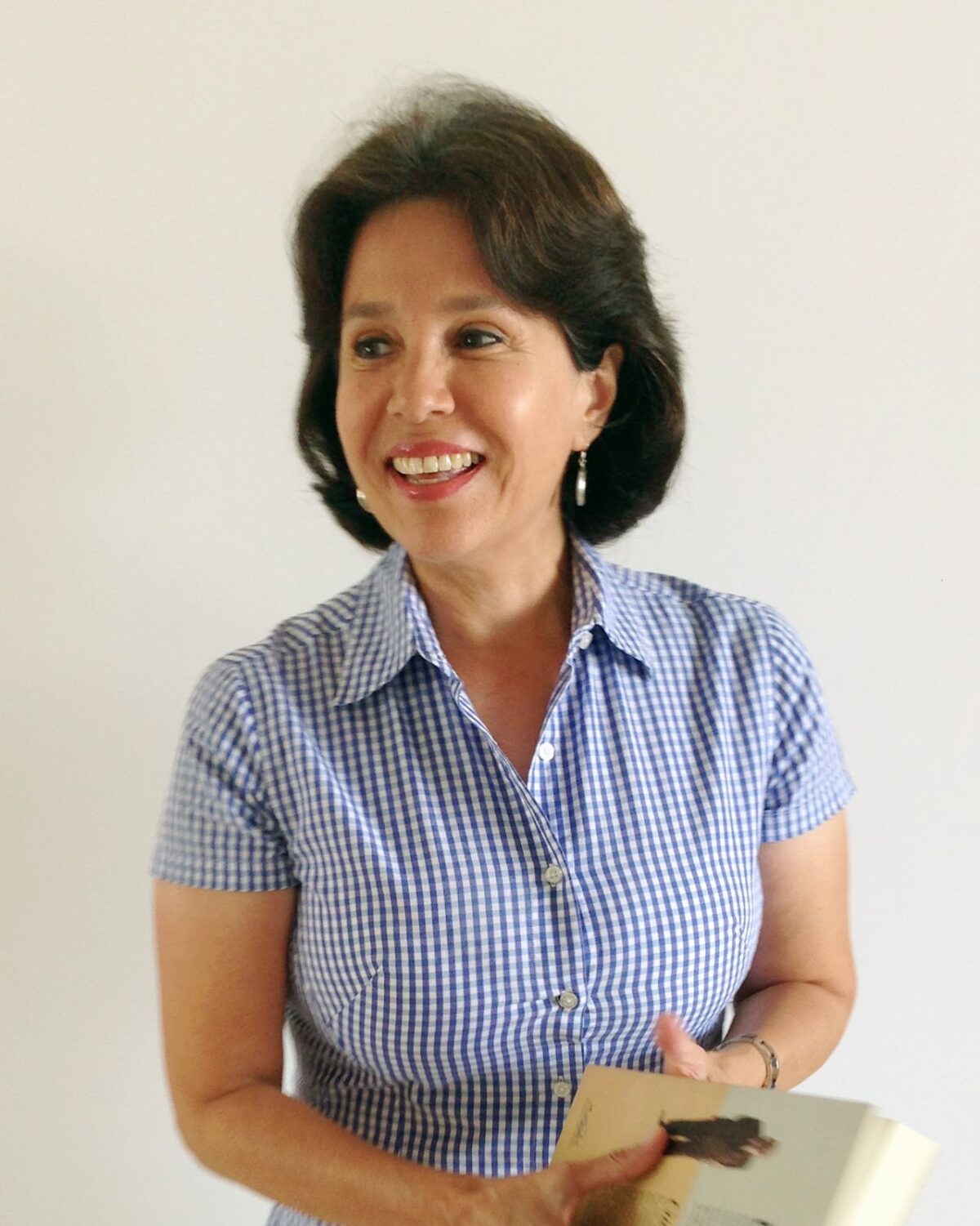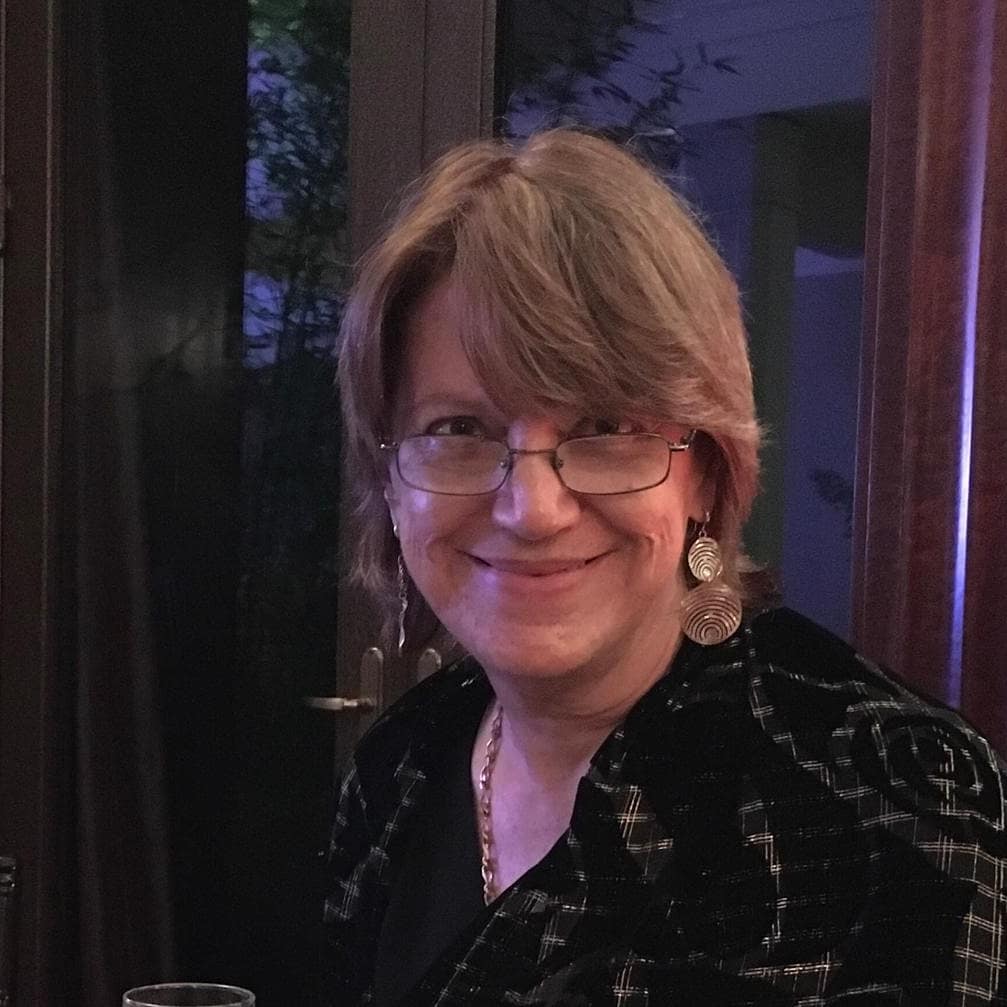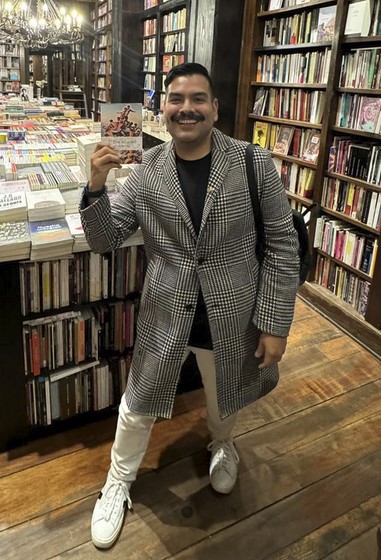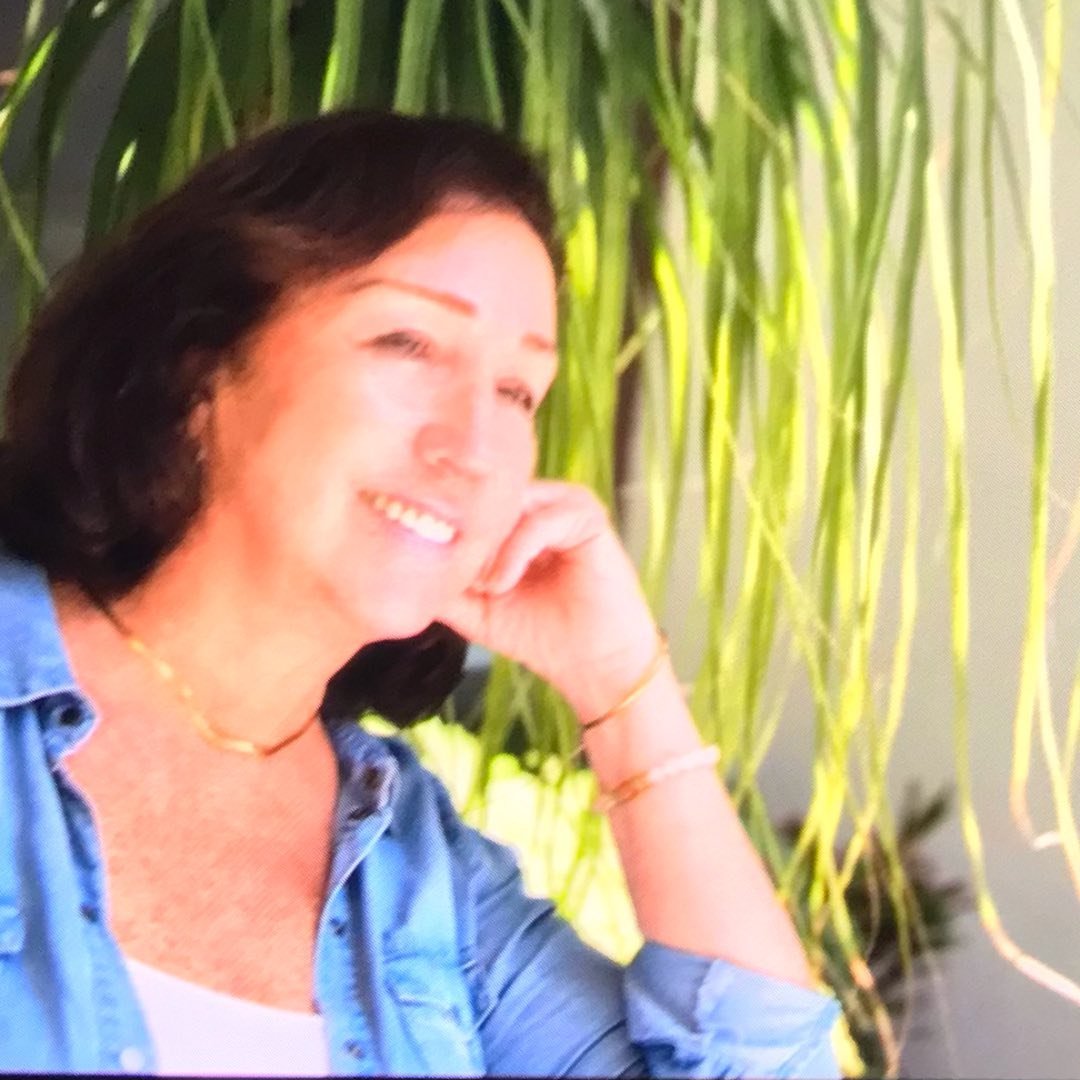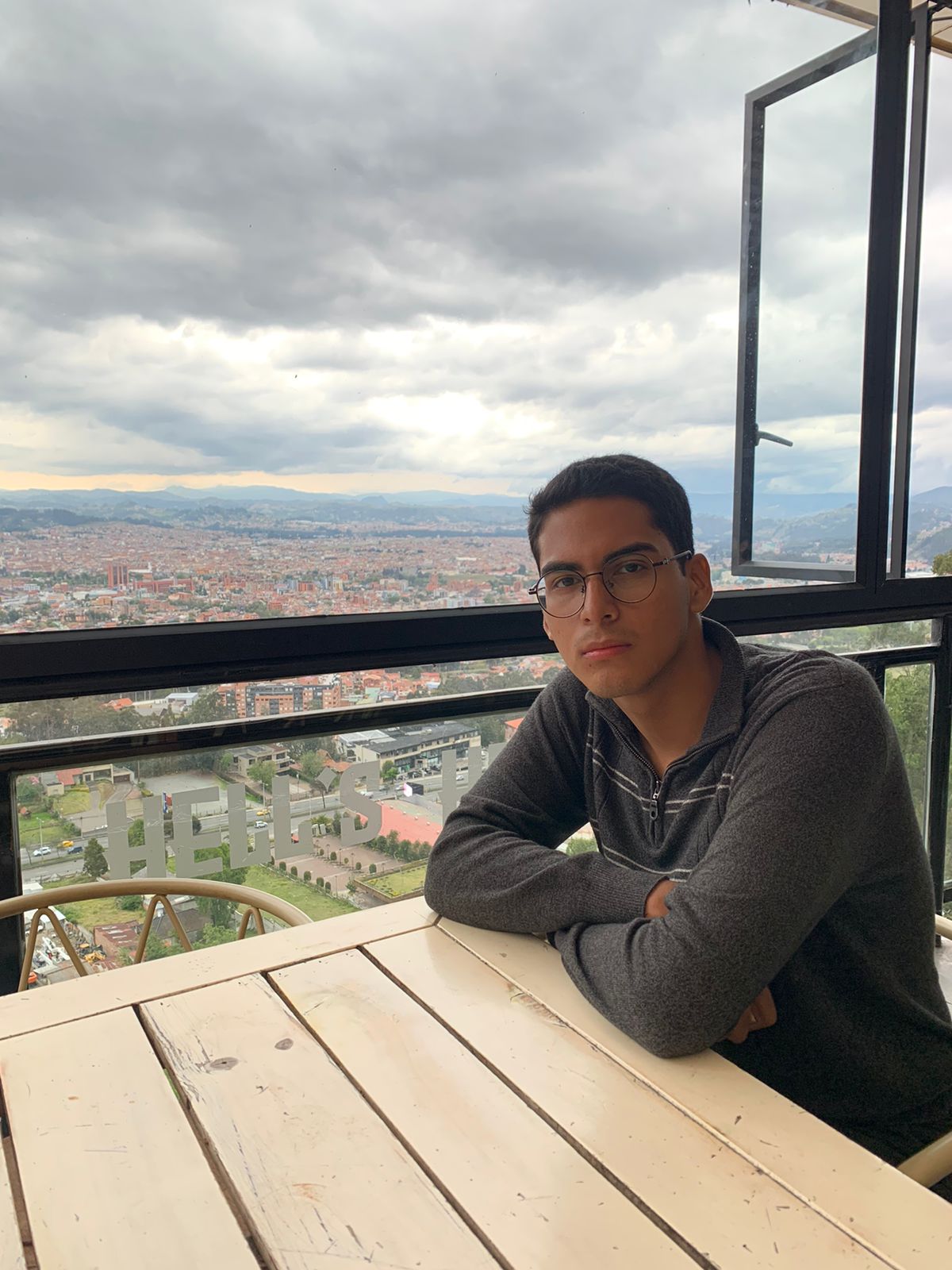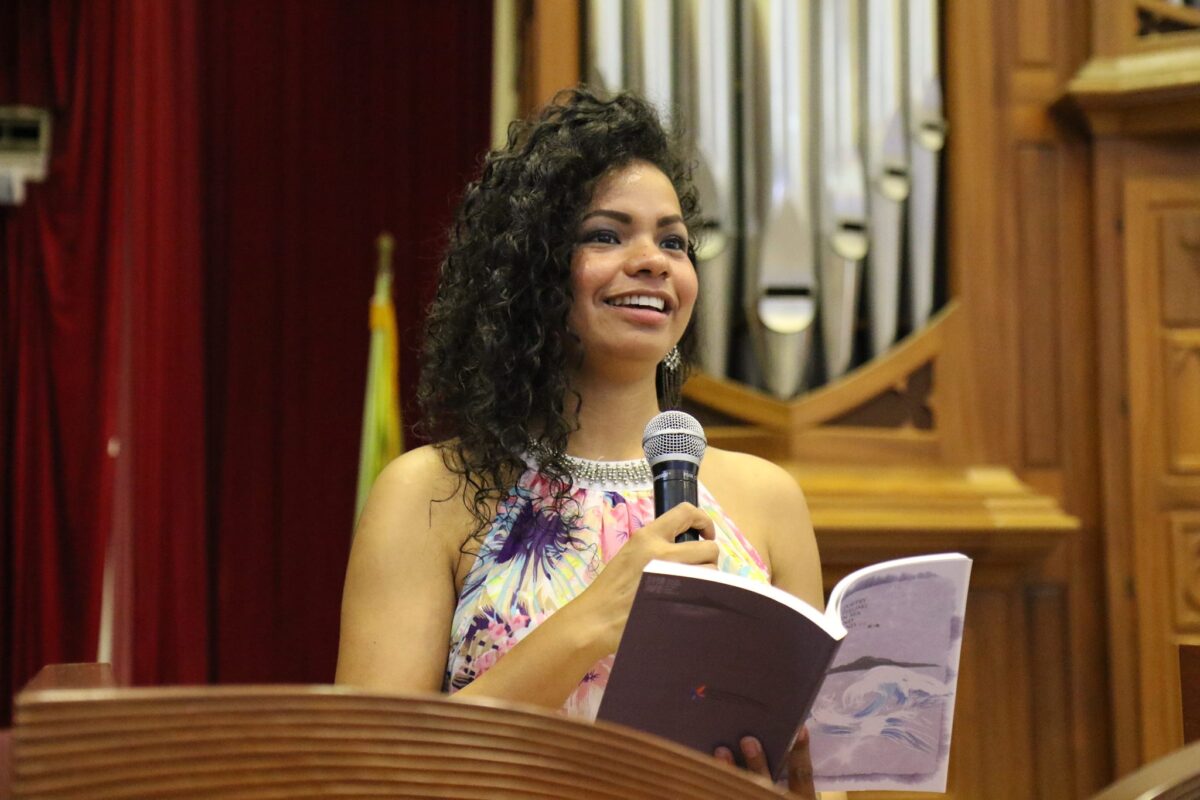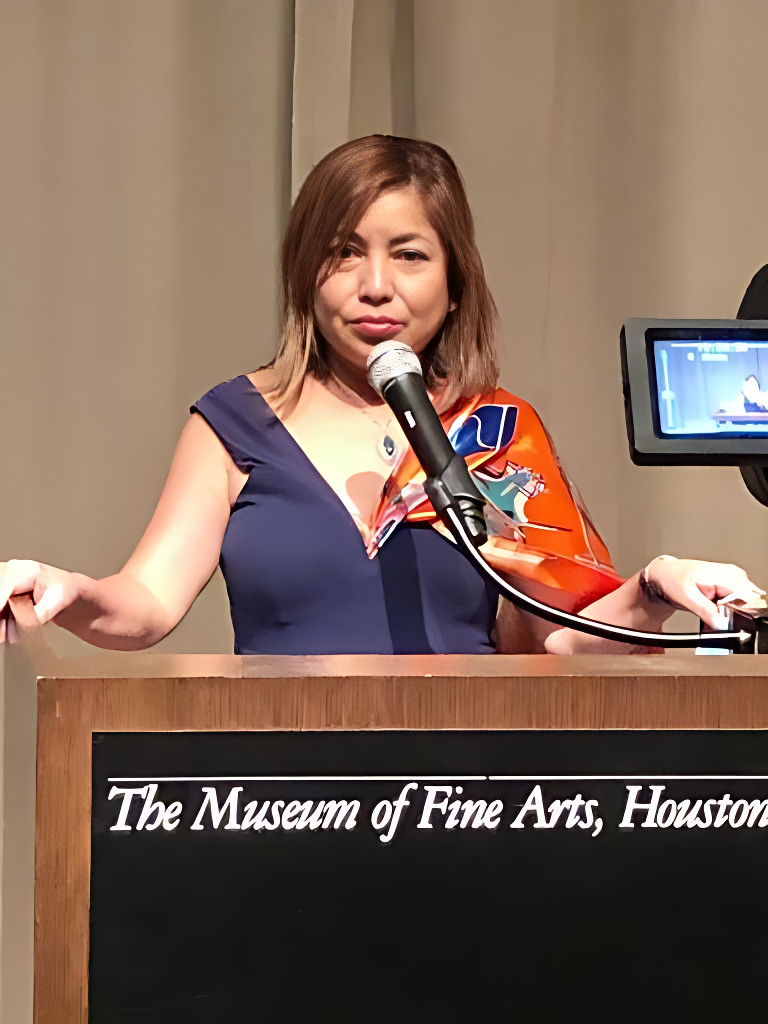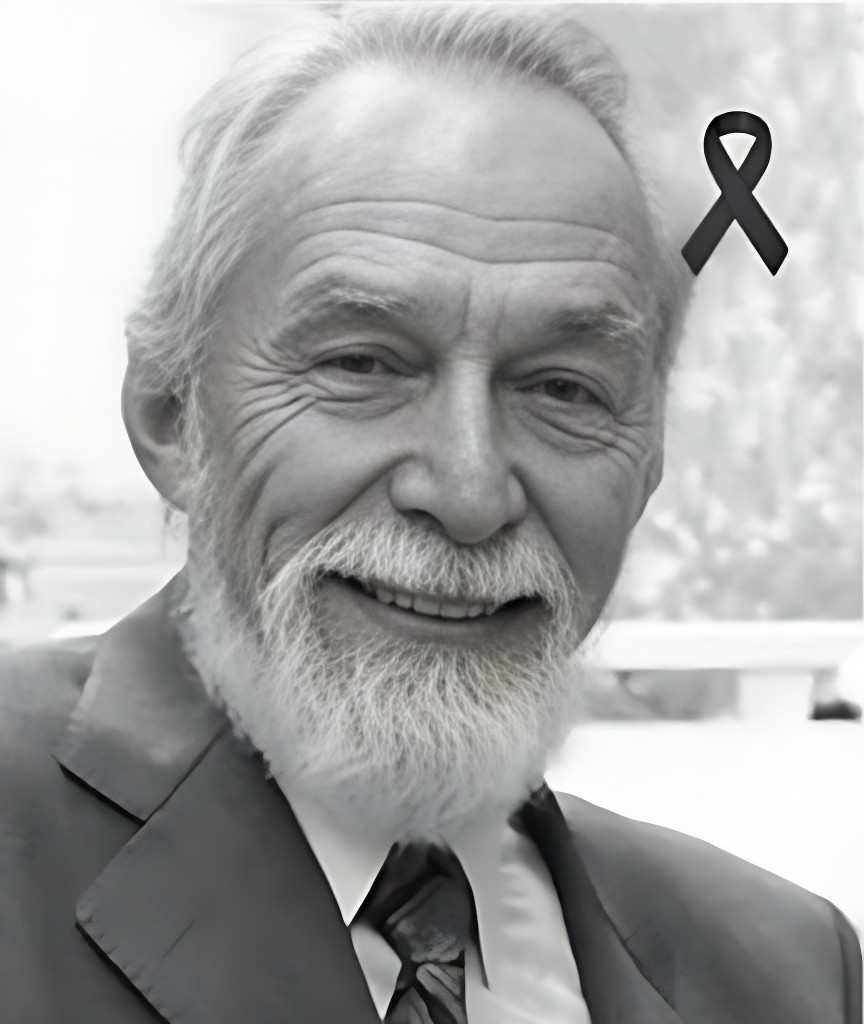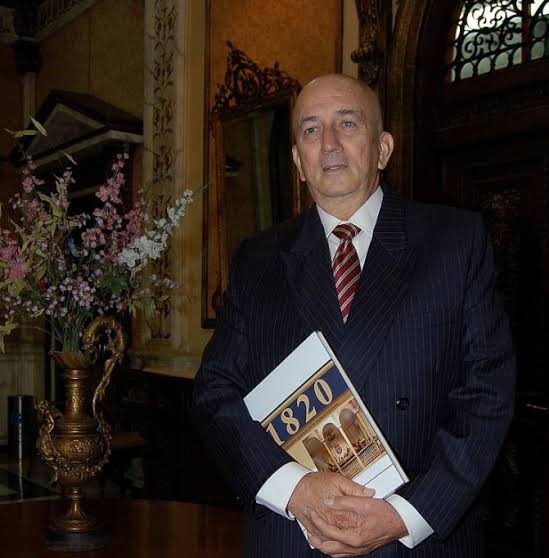Carolina Andrade (Guayaquil, 1963) is an Ecuadorian writer, university professor, and journalist known for her poignant short stories and novellas. She studied in Mexico at the literary workshops of the Sociedad General de Escritores Mexicanos (SOGEM) and later earned postgraduate degrees in Education, Humanistic Studies, and Communication. Her notable works include Detrás de sí (1994), De luto (1999), and the novel A orillas de un relato (2024), which explore themes of death, existential absurdity, and human fragility. Andrade’s works have been translated into multiple languages and featured in prestigious literary anthologies.
Continue reading “Carolina Andrade”Category: Writers from Guayaquil
Denise Rosales
Denise Rosales (Guayaquil, 1954) is an Ecuadorian novelist and short story writer known for her only novel, Los vértices del triángulo (1994), which explores themes of love and desire through a bold narrative of a love triangle. Her work has been featured in anthologies such as Libro de posta (1983), Frauen in Lateinamerika 2 (1987), and Antología de narradoras ecuatorianas (1997). Rosales has lived in Milan, Italy, and is recognized as part of the movement of prominent Ecuadorian women writers who gained recognition in the 1980s and 1990s.
Continue reading “Denise Rosales”Livina Santos
Livina Santos (Guayaquil, 1959) is an Ecuadorian writer and educator known for her contributions to feminist literature in Ecuador. She gained recognition with her short story collection Una noche frente al espejo (1989), which explores themes such as gender roles, societal repression, and existential issues through a feminist lens. A former member of the Advanced Literature Workshop at the Central Bank of Ecuador, she has also contributed to various literary anthologies. Alongside her literary career, Santos has taught literature and led numerous literary workshops, shaping the literary landscape of Ecuador.
Continue reading “Livina Santos”Liliana Miraglia
Liliana Miraglia (Guayaquil, 1952) is an Ecuadorian writer, storyteller, and photographer known for her short stories that blend irony, humor, and subtle reflections on women’s roles in society. She was a key member of the Creative Writing Workshop of the Central Bank of Guayaquil, led by Miguel Donoso Pareja, and her works often explore the complexities of everyday life with a minimalist and ambiguous narrative style. Her notable works include “La vida que parece” (1989; The Life That Appears) and “Un close up prolongado” (1996; A Prolonged Close-up). Many of her other stories have been featured in anthologies, underscoring her significance in Ecuadorian literature of the late 20th century.
Continue reading “Liliana Miraglia”David Aguirre
David Aguirre (Guayaquil, 1980) is an Ecuadorian author and clinical psychologist. He holds advanced degrees, including a Master’s in Psychoanalysis and a Master’s in Philosophy of Religion, along with a Doctorate in Psychology. His debut novel, El Dios del Árbol (2024; “The God of the Tree”), blends dark fantasy and psychological horror, reflecting his background in psychoanalysis. Aguirre’s work delves into themes of trauma, social alienation, and the grotesque, with influences from modern horror cinema. He presented the novel at the Guayaquil International Book Fair, establishing himself as a rising voice in Ecuadorian literature.
Continue reading “David Aguirre”María Inés Tinajero
María Inés Tinajero, an Ecuadorian author, recently presented her debut novel Ritorno a Venezia at the Feria Internacional del Libro de Guayaquil. This novel tells the story of a woman who defies societal norms to become the first female gondolier in Venice. The book, published by Línea Primitiva Editorial, marks Tinajero’s entry into the literary world and explores themes of gender, tradition, and resilience.
Nataly Daniela Flores Jara
Nataly Daniela Flores Jara (Guayaquil) is an emerging Ecuadorian author known for her novel Nacidos del Diamante: Cristhalina (2024). Her work explores themes of interplanetary conflict, destiny, and personal tragedy, blending imaginative world-building with emotional depth. Flores Jara was featured at the 2024 Guayaquil International Book Fair, where she presented her debut novel as part of Ecuador’s emerging literary voices.
Continue reading “Nataly Daniela Flores Jara”Carlos Daniel López
Carlos Daniel López (Guayaquil, Ecuador, 1995) is an emerging Ecuadorian author known for his evocative short stories and poetry. He gained initial recognition by contributing to the poetry anthology Manías de la mente (“Obsessions of the Mind”) and later solidified his reputation with the publication of Un día en la vida (2024; “A Day in the Life”), a collection of stories and poems exploring themes of love, loss, and hope. His work has been featured at the Guayaquil International Book Fair, marking him as one of Ecuador’s promising young literary voices.
Continue reading “Carlos Daniel López”María Fernanda Portés Valencia
María Fernanda Portés Valencia, known by her pseudonym Nefer PorVa (Guayaquil, Ecuador, January 19, 1987), is an award-winning writer and cultural manager who explores ecological, erotic, romantic, and experiential poetry, as well as children’s literature. Her notable work includes En el aire hay sexo (“There Is Sex in the Air”), a collection of erotic poetry. She is the founder of the Fundación de Integración Social y Desarrollo Humano Sostenible (FISDACE) and Círculo Artístico Cultural Brújula, promoting social and cultural projects in marginalized communities. Recognized internationally as a Peace Ambassador, she has received numerous accolades for her literary work. She has also worked as a First Officer in Ecuador’s Merchant Navy and as an engineer in Transport Administration and Maritime Ports.
Continue reading “María Fernanda Portés Valencia”César Carbache Mora
César Arturo Carbache Mora (Guayaquil, July 24, 1965) is an Ecuadorian cultural promoter, professor, and poet. He holds degrees in Social Communication, Higher Education, and Digital Communication, and is a doctoral candidate in Audiovisual Communication at the Universidad Complutense de Madrid. Carbache has published several poetry collections, including Desde lo alto del insomnio (1993; “From the Height of Insomnia”) and Antología poética 1993-2006 (2007; “Poetic Anthology 1993-2006”). He is a professor at the Universidad Laica Eloy Alfaro de Manabí and founder of ULEAM Bahía Magazine, contributing significantly to the fields of education, culture, and communication in Ecuador.
Continue reading “César Carbache Mora”Carlos Altamirano Sánchez
Carlos Altamirano Sánchez (Guayaquil, November 15, 1926) is an Ecuadorian poet and journalist, recognized for addressing social issues through his works, including “Hijo Imperfecto” and “Lamento de un Soñador.” His contributions have earned him accolades such as the Gold Medal in the Borja Lavayen Poetry Contest and a significant role in founding the Union of Ecuadorian Journalists, highlighting his impact on Ecuador’s cultural and literary spheres.
Continue reading “Carlos Altamirano Sánchez”Elizabeth Quila
Elizabeth Quila (Guayaquil, September 19, 1964) is an Ecuadorian writer based in Houston, Texas, renowned for her remarkable contributions to literature and the arts. Quila’s work spans various domains including literature, psychology, and cultural management. Her diverse achievements reflect her commitment to promoting Ibero-American literature globally and utilizing art as a medium for psychological healing and social engagement. Her novel, “El cadáver que envejece dentro de su tumba” (The Corpse That Ages Inside Its Grave) won 3rd place in the Latino Book Awards of 2020.
Continue reading “Elizabeth Quila”Jaime E. Rodríguez O.
Jaime Edmundo Rodríguez Ordóñez (Guayaquil, April 12, 1940 – Los Angeles, USA, June 27, 2022) was a celebrated Ecuadorean-American professor, researcher, and historian. His work focused on the history of New Spain, Mexico, the Presidency of Quito, and the independence period in Hispanic America. Rodríguez Ordóñez’s notable contributions to historiography include his profound analysis of the impact of Spain’s Constitutional Monarchy and the independence movements in Latin America. His works, such as “Nosotros somos ahora los verdaderos españoles” and “The Forging of the Cosmic Race,” offer insightful reinterpretations of colonial Mexico and the emergence of Hispano-American identity. He held academic positions at prestigious institutions, including the University of California, Irvine, and was a member of the National Academy of History of Ecuador and the Mexican Academy of History. Rodríguez Ordóñez’s unique perspective on the interconnectedness of Hispanic America with global events during the Atlantic Revolutions significantly enriched the understanding of Latin American history and its complex journey towards independence and nation-building.
Continue reading “Jaime E. Rodríguez O.”Efrén Avilés Pino
Efrén Avilés Pino (Guayaquil, February 26, 1947 – Ibidem, December 31, 2009) was a renowned Ecuadorian historian, writer, and university professor. Educated at the University of Guayaquil, he significantly contributed to Ecuador’s historical research, emphasizing the Province of Guayaquil’s role in national independence. His acclaimed works include the “Enciclopedia del Ecuador” and “Historia del Ecuador.” Also notable in the music industry, Avilés composed the anthem for Club Sport Emelec. A member of the National Academy of History, he resigned amid controversies over historical perspectives. Honored with the Merit of Commandeur in 2002, his legacy in Ecuadorian history and culture is enduring.
Continue reading “Efrén Avilés Pino”Jenny Estrada
Jenny Estrada, or Jenny María Estrada Ruiz (Guayaquil, June 21, 1940 – February 9, 2024) was an eminent Ecuadorian writer, journalist, and historian. Her impactful career began at “El Universo” in 1968, where she was the first woman to serve as an editorialist, pioneering female representation in Ecuadorian journalism. Estrada’s work, deeply rooted in socio-political and cultural analysis, reflects her commitment to uncovering Ecuador’s diverse narratives, particularly the roles and challenges of women. Her notable literary contributions include “Las mujeres de Guayaquil, siglo XVI al XX” and “Matilde Hidalgo de Prócel, una mujer total,” which highlight women’s significant but often overlooked contributions to Ecuadorian history. Estrada’s dedication extends beyond writing; she was instrumental in founding the “Museo Municipal de la Música Popular Julio Jaramillo,” preserving Ecuador’s rich musical heritage. Her esteemed memberships in the National Academy of History of Ecuador and the Spanish Royal Academy of History, along with numerous cultural merit awards, mark her as a pivotal figure in shaping Ecuador’s cultural and historical consciousness. She worked as a columnist under the pseudonym María Ignacia.
Continue reading “Jenny Estrada”
